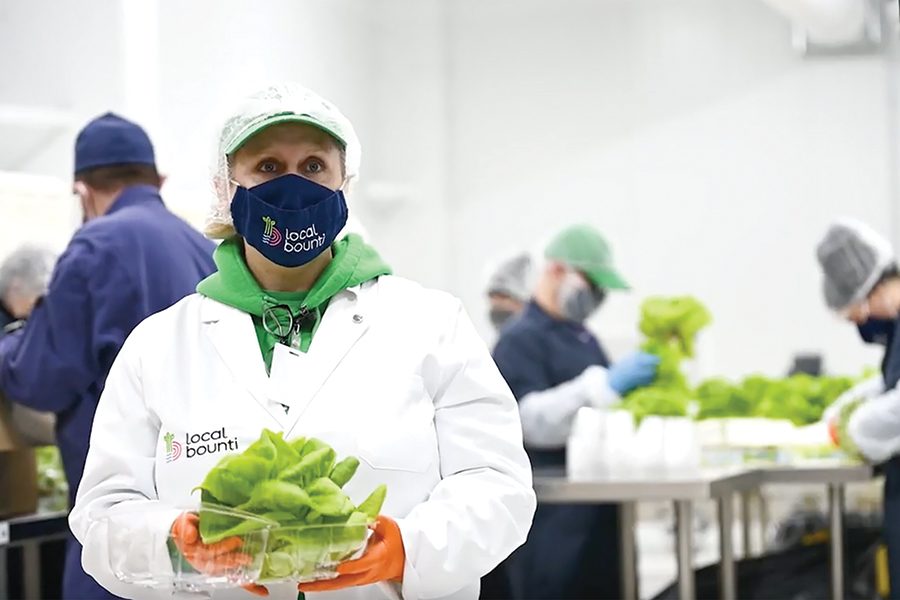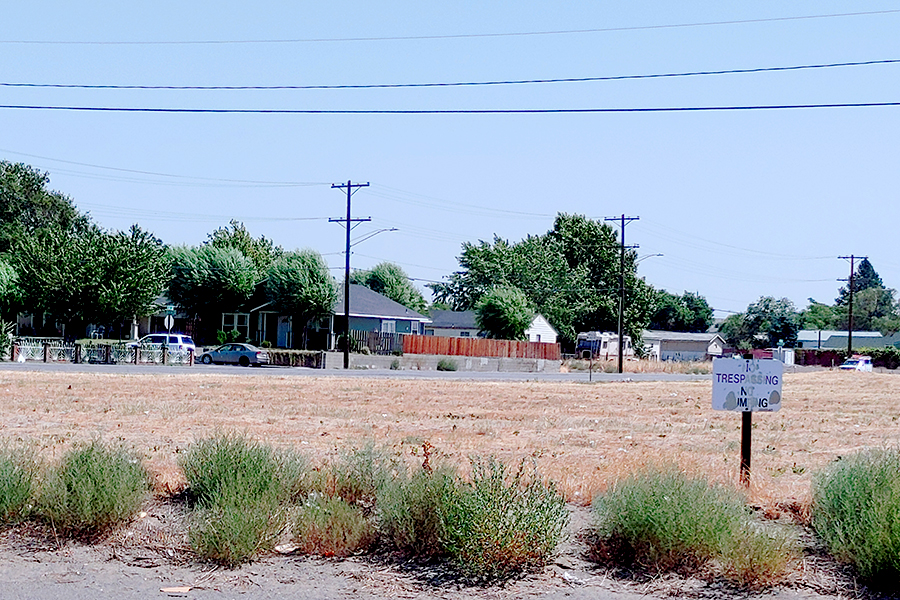
Home » Montana ag company plans $40M Pasco greenhouse on heels of $1.1B IPO
Montana ag company plans $40M Pasco greenhouse on heels of $1.1B IPO

July 15, 2021
A Montana startup that raises lettuce and herbs in high-tech greenhouses is coming to the Tri-Cities on the heels of a merger that will take the company public with a valuation of $1.1 billion.
Local Bounti, launched in Hamilton, Montana, in 2018 by a pair of former energy industry executives, will build the first of eight IPO-funded greenhouse complexes west of the Mississippi River in Pasco.
The $40 million complex will include 32 greenhouses on 28 acres at Oregon Avenue and A Street in Pasco. It began discussing the project, dubbed Project Sunshine, with the Tri-City Development Council (TRIDEC) earlier this year.
The company built its original greenhouse in western Montana and is using proceeds from the IPO to build a network to serve what it calls a
$10.6 billion market in the west, according to a June presentation to investors.
“We are so excited to be coming to the Tri-Cities,” said Kathleen Valiasek, chief financial officer.
An unnamed site in northern Colorado will be next. It is targeting western Nevada, southern Utah and the Texas-Oklahoma border for future facilities. All are expected to be open by 2025.
Local Bounti paid $3.1 million for the Oregon Avenue site in a deal that closed June 3. It is north of Big Pasco Industrial Park, near U-Pull-It Auto Parts, an auto wrecking yard. The site is vacant, but Local Bounti indicated it would break ground in June, with a target opening date of April 2022.
The land deal came shortly before Local Bounti said it would go public via a merger with Leo Holdings III Corp. (NYSE: LIII), a publicly traded special purpose acquisition company, or SPAC, also known as a “blank check” investor. The combined company will trade under the symbol LOCL.
The deal will provide up to $400 million to the combined company and fund plans to develop what it calls “controlled environment agriculture” facilities like the ones planned in Pasco and elsewhere.
Cargill, the Minnesota-based food giant, is teaming with the head of a Thai-based energy and infrastructure company to invest $125 million through a private equity placement. Cargill is also expected to provide $200 million in debt.

The Pasco complex will serve customers in Washington and Oregon, according to a map displayed during the June presentation.
It currently produces seven different leafy products and expects to ramp up to 30 to 40 products in the near term.
Its product line includes its “living” basil, cilantro and butter lettuce sold with the roots on, as well as its harvested or “cut” lettuce products such as green leaf, red leaf, butter and romaine lettuce.
Local Bounti products are carried in 100 retail locations, chiefly Associated Food Stores URM retail banners including some Yoke’s Fresh Markets. It was not available in the Kennewick or West Richland Yoke’s in early July.
Local Bounti casts itself as an agriculture disruptor ready to address looming food shortages through its indoor model.
The investor presentation lays out the challenge: The world will need to produce up to 70% more food by 2050 but doesn’t have enough arable land and water to sustain traditional agriculture. Indoor agriculture will be worth $30 billion in the U.S. within a few years, and $10.6 billion in the western states.
“Traditional agriculture is in need of a transformation,” it said.
According to Local Bounti, its approach leaves no pesticide or herbicide residue and consumes up to 90% less water and land. It has a year-round growing season and because its greenhouses are close to consumers, its transportation costs and related emissions are lower than traditional agriculture.
Its greens have longer shelf lives because there are less bacteria in the controlled environment. The cost competitive process is better for employees and delivers better quality produce to customers, it said. The investor document did not indicate how many workers it will need to operate each complex.
Leafy greens are cultivated in vertically stacked “Stack & Flow” racks in its greenhouses, with the different crops harvested every 16 to 28 days.
The company was formed by Travis Joyner and Craig Hurlburt, former energy executives who led Montana-based BrightMark Partners. When they could not find an indoor agriculture business that met their investment criteria, the left to start one.
They serve as co-CEOs.
Hurlbert served as CEO and chair of an energy company before its sale and Joyner holds a doctorate in market research and statistics from the University of Kansas and a law degree from the University of Montana.
In a press release announcing the IPO deal, Hurlbert indicated its vision extends beyond the west.
“(The) announcement takes Local Bounti to the next level in enabling local, sustainable production and delivery of fresh, delicious and nutritious produce, including in regions that traditionally don’t have access to local supply, starting in the western U.S. and expanding globally,” he said,
Its merger partner, Leo Holdings, is led by a trio of Wall Street veterans, including chairman Ed Forst, whose background includes high level posts at Goldman Sachs, Cushman & Wakefield and Harvard University.
Its greenhouses are constructed with pre-engineered, off-the-shelf construction and technology.
Jason Goffard of Kiemle Hagood represented the seller, Snake River Agriculture LLC, in the sale to Local Bounti, which owns the site through Growth Bounti Northwest LLC.
Snake River Agriculture is a holding of investor Steve West.
Local News
KEYWORDS july 2021





